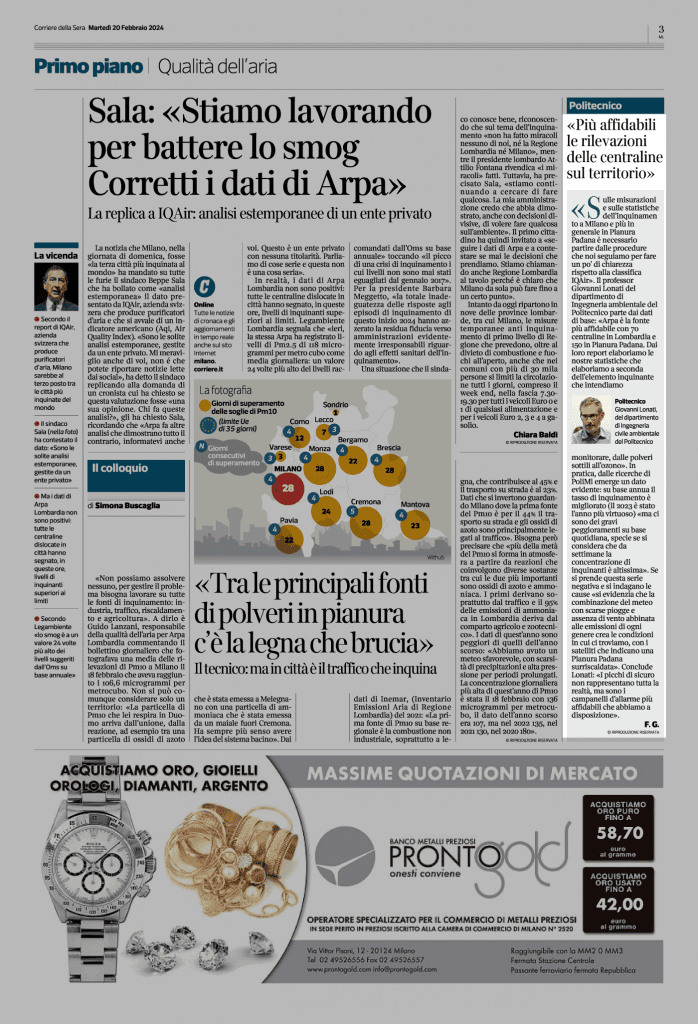Il Professor Giovanni Lonati è stato intervistato dal Corriere della Sera riguardo alle misurazioni e alle statistiche dell’inquinamento a Milano.
«Sulle misurazioni e sulle statistiche dell’inquinamento a Milano e più in generale in Pianura Padana è necessario partire dalle procedure che noi seguiamo per fare un po’ di chiarezza rispetto alla classifica IQAir». Il professor Giovanni Lonati del dipartimento di Ingegneria ambientale del Politecnico parte dai dati di base: «Arpa è la fonte più affidabile con 70 centraline in Lombardia e 150 in Pianura Padana. Dai loro report elaboriamo le nostre statistiche che elaboriamo a seconda dell’elemento inquinante che intendiamo monitorare, dalle polveri sottili all’ozono». In pratica, dalle ricerche di PoliMi emerge un dato evidente: su base annua il tasso di inquinamento è migliorato (il 2023 è stato l’anno più virtuoso) «ma ci sono dei gravi peggioramenti su base quotidiana, specie se si considera che da settimane la concentrazione di inquinanti è altissima». Se si prende questa serie negativa e si indagano le cause «si evidenzia che la combinazione del meteo con scarse piogge e assenza di vento abbinata alle emissioni di ogni genere crea le condizioni in cui ci troviamo, con i satelliti che indicano una Pianura Padana surriscaldata». Conclude Lonati: «I picchi di sicuro non rappresentano tutta la realtà, ma sono i campanelli d’allarme più affidabili che abbiamo a disposizione».
—

